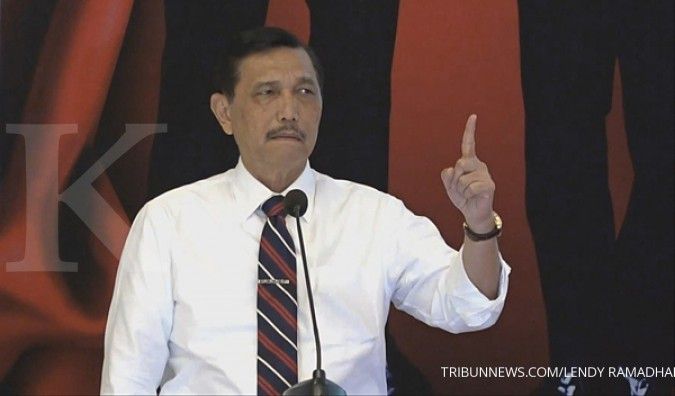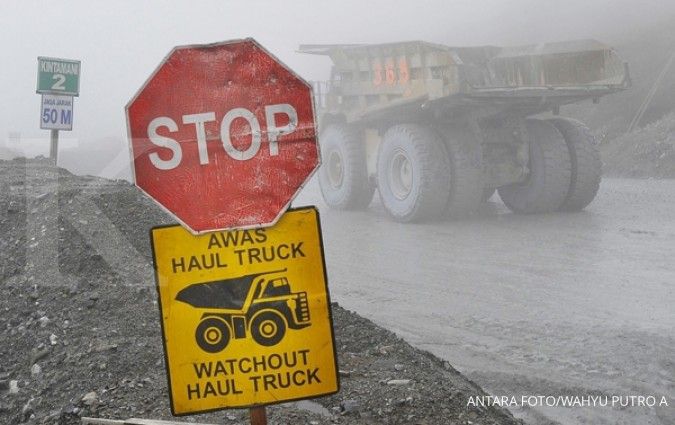JAKARTA. In less than two months, Freeport McMoran will commemorate a special moment. On 7 April 50 years ago, President Soeharto signed a Contract of Work (CoW), with Freeport Sulphur under the name of Freeport Sulphur.
Supposedly, Freeport will celebrate the gold anniversary. However, this time, the US-based mining company should face a bitter experience. During several days in February, President and Chief Executive Officer (CEO) of Freeport-McMoran Inc Richard Adkerson has to come to Indonesia to save the business interests of the company in this country.
Started from 12 January 2017, Freeport can no longer export mineral concentrates from its mines in Papua. The Government of Indonesia imposed the ban to Freeport, on the grounds that the company has failed to comply with some regulations, including building smelter facilities.
Freeport’s attempts to save its business interests reached its climax on 17 February 2017, when Freeport sent a letter to the Ministry of Energy and Mineral Resources (ESDM).
In the letter, Freeport mentioned that the government has defaulted and violated the CoW. “Freeport and the government have 120 days to settle the dispute. If the two parties fail to settle the dispute, Freeport then can exercise its rights,” Richard said. He added that nowadays, Freeport would have yet to file the case to the arbitration. However, the company has started the process to bring the case to the arbitration.
Freeport has several times threatened the Government of Indonesia. The mining observer at Gajah Mada University Fahmy Radhi, previously Freeport had threatened the government to counter the Law No 4/2009 that ban the export of minerals, which have not being processed in smelter. At that time, Freeport threatened the government to stop the productions of PT Freeport Indonesia, to lay of the employees, and to file a lawsuit against the government to the International Arbitration.
However, this time the government does not flinch to the threat. The Minister of Energy and Mineral Resources (ESDM) expects that the government and Freeport can settle this dispute without going through the arbitration. If both sides fail to reach an agreement (to settle the dispute), each party is eligible to file the case to the arbitration. Not only Freeport, the government (of Indonesia) is also eligible (to file the case to the arbitration),” Jonan stressed.
The Law No 4/2009 on Mineral and Coal Mining stipulates that the CoW holders, which have been producing, such as Freeport, are subject to conduct the smelting activities no later than five years, after the law was enacted on 12 January 2009.
Actually, Freeport has been conducting the smelting activities for its copper concentrates in smelter facility, which is operated by PT Smelting Gresik, East Java. In this company, Freeport Indonesia controls 25% of Smelting Gresik’s shares, while the other 75% of shares controlled by a Japan-based consortium company, which is led by Mitsubishi Materials Corporation.
However, Freeport has only processed 40% of copper concentrates in the smelting facility, while the company is still exporting the raw minerals from Papua in a large amount.
However, eight years after the enactment of the Law No 4/2009, Freeport has yet to comply with the obligation to build smelter. In fact, during the recent years Freeport has been continuously claiming the plan of building smelter worth US$ 2.3 billion on the area owned by PT Petrokimia Gresik.
Despite Freeport has yet to comply with the rules, the government has several times granted leeway for the company to continue exporting the raw mining products, including by releasing the Government Regulation No 1/2017. However, the government regulation has sparked Freeport criticisms.
The regulation has reinforced some provisions, which are stipulated under the Law No. 4/2009, such as the obligation for the CoW holders to domestically conduct smelting activities of their mining products. Therefore, the CoW holders, such as Freeport can no longer export concentrates.
Since Freeport has yet to conduct the downstream mining activities, the government has offered Freeport and other CoW holders to convert the CoW to the special mining license (IUPK). The status conversion is not an obligation. Instead, this is an option for the CoW holders, which have yet to implement the downstream mining activities, but may want to continue exporting raw minerals.
The Law on Mineral and Coal does not specify the time limit for the mining license (IUP) and the IUPK holders to build smelted. “Now, the government sets a time limit of five years (to build the smelter),” Jonan said.
Once Freeport makes commitment to build smelter, the government will directly grant the permit to export the concentrates. However, this time, the progress on smelter construction would be monitored by a special team once in every six months. The independent team will be selected by the government through an auction mechanism. In this case, the government will revoke the export recommendation of the mining company, which fails to meet the minimum 90% completion of smelter construction, Jonan added.
Actually, on 16 February 2017 Freeport has applied for export recommendation with including a commitment statement to build smelter. One day after Freeport submitted the application, the Director General of Mineral and Coal of the Ministry of ESDM Bambang Gator Ariyono had issued the export recommendation.
However, Freeport insisted that all agreements under the IUPK should be in accordance with the provisions stipulated under the CoW, including exporting copper concentrates. “The government has issued the export permit with the condition that we have to convert the CoW status. Freeport cannot accept that condition, due to several important things,” Richard said.
Freeport actually had once agreed to convert its status to IUPK. On 10 February 2017, Jonan had signed the status conversion. However, Freeport later changed its decision, on the grounds that the status conversion requires a divestment of 51% of shares in a gradual manner within a 10-year period. The status conversion also requires Freeport to comply with the changing tax conditions. Freeport insisted to maintain the current taxation system with the flat tariff.
To date, the government remains consistent on its stance. Jonan said, it is impossible for the government to make a regulation, which contradicts to the Constitution. All laws and regulations have to refer to the Constitution. Hopefully, the government will remain consistent. (Muhammad Farid/Translator)
/2017/02/24/1301890837p.jpg)











